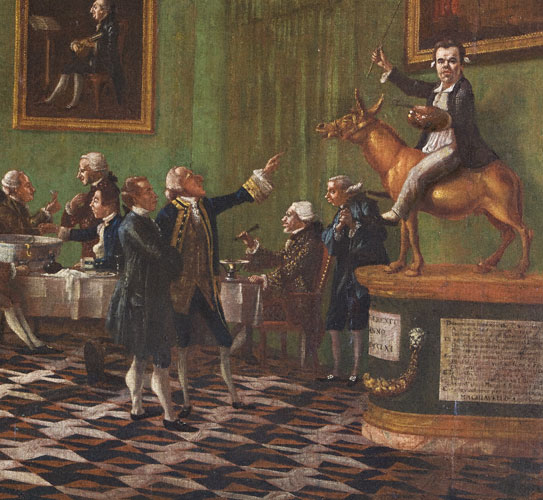Do you like to read? Do you like to find out what great minds have thought, or are thinking, about the issues which concern us all, or escape into the world of a great story well-told? If so, Ralph Waldo Emerson would, with reservations, like to kick you in the groin:
Hence, instead of Man Thinking we have the bookworm. Hence, the book-learned class who value books as such.... Hence, the restorers of readings, the emendators, the bibliomaniacs of all degrees....Books are for the scholar’s idle times. When we can read God directly, the hour is too precious to be wasted in other men’s transcripts of their readings.It's "The American Scholar," delivered to a bunch of pantywaists 181 years ago today, and as such the foundation document of Rocky Todd-ism (something I realize I have referenced twice before in relation to Emerson).
Not that Emerson is against reading -- in certain situations, he's for it. Actually what he seems to be for is misreading, in the Harold Bloom sense of the word (note that I have never read any Bloom, I'm just picking it up from the street) -- i.e., strongly and strenuously and bravely and manfully imposing your own brawny American powerful hairy reading on the nerd whose writing happened to be in the wrong place at the wrong time when it met you:
One must be an inventor to read well. As the proverb says, “He that would bring home the wealth of the Indies, must carry out the wealth of the Indies.” There is then creative reading as well as creative writing. When the mind is braced by labor and invention, the page of whatever book we read becomes luminous with manifold allusion...The discerning will read, in his Plato or Shakespeare, only that least part,—only the authentic utterances of the oracle; all the rest he rejects, were it never so many times Plato’s and Shakespeare’s.The discerning (almost literally, the illuminati) get to decide what authentic is. The rest of you can just go back to your sherry.
Also, get a job:
Years are well spent in country labors; in town, in the insight into trades and manufactures; in frank intercourse with many men and women; in science; in art,—to the one end of mastering in all their facts a language by which to illustrate and embody our perceptions...This is the way to learn grammar. Colleges and books only copy the language which the field and the workyard made.Maybe it's appropriate to the Genius of this country that one of our founding intellectual documents should be so anti-intellectual.
























